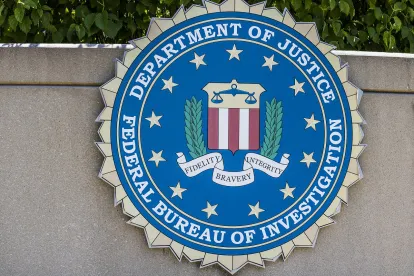This week, two senior U.S. Department of Justice (DOJ) Environment and Natural Resource Division (ENRD) officials used their remarks to the American Bar Association’s annual National Environmental Enforcement Conference to convey a clear message: environmental enforcement, and in particular criminal enforcement, is back. Companies and individuals should expect more robust investigations that draw on the expertise and jurisdiction of various federal agencies, while prosecutions will be driven by enhanced DOJ criminal enforcement policies.
While we have previously written that many enforcement metrics have declined over at least the last four years, criminal enforcement didn’t go away. The more recent declining trend was due in part to the prior administration’s focus on incentivizing compliance rather than emphasizing enforcement actions, among other things. No longer, said the Chief of DOJ’s environmental crimes section, Deborah Harris, on Wednesday. Instead, the federal government is “going to head more to vigorous enforcement as opposed to just aiming for compliance.” In other words, Harris said, it is “going back to a little bit more stick than carrot” for its enforcement approach. Importantly, Harris also emphasized a continued emphasis on prosecuting white collar offenses, such as making false statements or committing fraud, which often go hand-in-hand with environmental crimes.
Assistant Attorney General Todd Kim, who leads the ENRD, discussed both civil and criminal enforcement in his keynote address. Kim pointed to the importance of criminal enforcement as “an indispensable and powerful deterrent to illegal behavior,” more so than “the threat of civil enforcement alone.” Kim also touched on the dual nature of individual and corporate enforcement, noting that “most often, the entity on the other side of the “V.” from the United States is a business organization of some sort and usually a corporation.” While “only individuals can go to jail,” Kim noted, criminal “corporate accountability starts with accountability for individuals responsible for criminal conduct.” DOJ and ENRD prosecutors have long prosecuted individuals for environmental crimes and, as Kim makes clear, will continue to do so. Kim’s re-emphasis of this point is consistent with Deputy Attorney General (DAG) Lisa Monaco’s recent remarks that “accountability starts with the individuals responsible” and Attorney General Merrick Garland’s making clear his “first priority” in corporate criminal matters is to prosecute individuals who commit and profit from corporate malfeasance. Most notable from Monaco’s remarks is that the DOJ is returning to its guidance under its memorandum on “Individual Accountability for Corporate Wrongdoing” (the “Yates Memo”), which requires that, in order to receive cooperation credit, companies under investigation need to provide information related to all individuals involved in the alleged misconduct (since 2018, DOJ had only required companies to provide information related to individuals “substantially involved in or responsible for” the alleged misconduct). Kim and Harris’s comments this week indicate a clear intention on the ENRD’s part to closely follow this guidance.
Perhaps the more noteworthy points of Kim’s discussion of criminal enforcement related to corporate environmental crime. Of particular note was Kim’s warning of “the need for a corporation to exercise due care throughout its supply chain.” A company’s failure to fulfill its “due care” obligation (i.e. “to take responsibility for their products and fully know their supply chain – thus enabling them to ensure legality”) could carry significant consequences: “the prospect of criminal sanction; the potential seizure and forfeiture of illegally-sourced timber, goods, vessels and other equipment; and the unavailability of an innocent owner defense.” Although the example Kim gave to illustrate this was of Lacey Act prosecutions for sale of illegally harvested timber, the message has broader import for industries far beyond timber.
Kim also discussed some key shifts for DOJ’s corporate criminal enforcement and the creation of the Corporate Crime Advisory Group within DOJ, which were announced earlier this fall, in a memorandum issued by DAG Lisa Monaco. Among the key shifts addressed both in the DAG’s memorandum and in Kim’s speech are “consider[ing] a corporation’s entire criminal history;” clarifying that providing “all information concerning all persons involved in corporate misconduct” is a prerequisite for a corporation to receive cooperation credit; and embracing “the use of monitorships.” The corporate criminal history change will significantly broaden the scope of misconduct that prosecutors consider when determining whether and how to resolve a corporate criminal investigation. Many companies routinely face regulatory scrutiny by different authorities, both domestic and foreign. Those prior actions – even those involving totally unrelated conduct – are now fair game for DOJ to consider as part of any resolution. The Corporate Crime Advisory Group was created to consider these and other possible revisions to DOJ’s approach to prosecuting corporate environmental crime. Together, these three factors could lead to a considerable shift in the way cases are charged, how resolutions are negotiated, and what forward-looking compliance measures may be required.
One of the motivations apparently guiding ENRD’s enforcement ethos, as well as relevant penalty policies, is the principle of fairness. As Kim said, “vigorous and robust enforcement is necessary to . . . create a level playing field for businesses that obey the law.” Another aspect of criminal enforcement is that it “leads to greater civil compliance,” according to Kim. Kim’s comments clearly supported Harris’s view that DOJ will prioritize enforcement, and in particular criminal enforcement, over the compliance assistant approach seen during the prior administration.
As for civil environmental enforcement, Kim’s address highlighted a couple of specific ENRD tools including “sector-wide enforcement” and the use of corporate monitors. ENRD uses “sector-wide enforcement” (i.e. an enforcement approach targeting a particular industrial sector or segment thereof experiencing widespread noncompliance) as a tool to “spotlight compliance problems, publicize the government’s enforcement plans and objectives for a sector and, hopefully, catalyze proactive compliance steps by other sources in the sector, including cultural changes, to avoid becoming enforcement targets.” Likewise, as noted above, ENRD is turning to including corporate monitors in its resolutions of cases as a means to ensure a return to compliance.
Although this week’s presentations are a good indicator of DOJ’s environmental enforcement priorities, exactly how those goals will be implemented in practice remains to be seen. A few things may shed more light on that in the coming months. First, the expected confirmation of President Biden’s nominee to lead EPA’s Office of Enforcement and Compliance Assurance (OECA), David Uhlmann, who has already received Senate committee approval and now awaits a vote from the full chamber, is likely to bring strong direction to the office and guide its work. As the former Chief of ENRD’s Environmental Crimes Section and noted scholar on trends in environmental criminal enforcement, Uhlmann is likely to work to increase the number of EPA criminal investigative agents and re-focus OECA’s resources on strong enforcement training, investigation, and prosecution (civil or criminal) of all violations. Second, as Kim mentioned on Tuesday, DOJ and OECA are developing a strategy, as directed by President Biden’s Executive Order 12,898, to help remedy “systemic environmental violations and contaminations” through environmental justice-focused enforcement. And third, OECA’s release of its annual enforcement results, which covers the prior federal fiscal year (ending September 30th) and is traditionally released in January or February, should give the first holistic picture of the Biden administration’s first nine months.
Companies should take at least one thing away from Kim’s and Harris’s messages: it is as critical as ever to proactively maintain compliance with applicable environmental laws. Taking compliance seriously is a company’s best chance at avoiding an enforcement action. Otherwise, as both DOJ officials warned, an increased risk of enforcement may follow, particularly when violations share a nexus with the Administration’s priority areas of environmental justice or climate. As always, we will continue to monitor the federal environmental enforcement sphere to help keep you abreast of developments.






 />i
/>i
